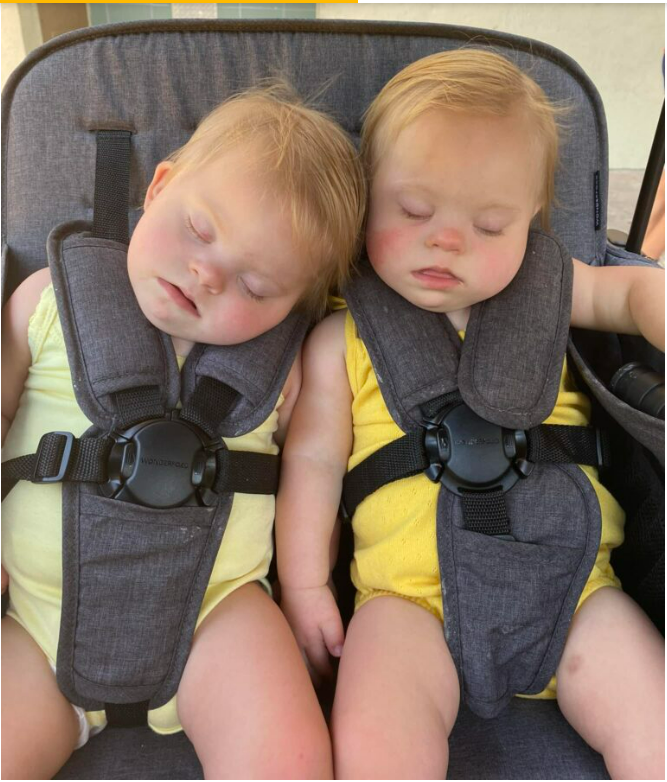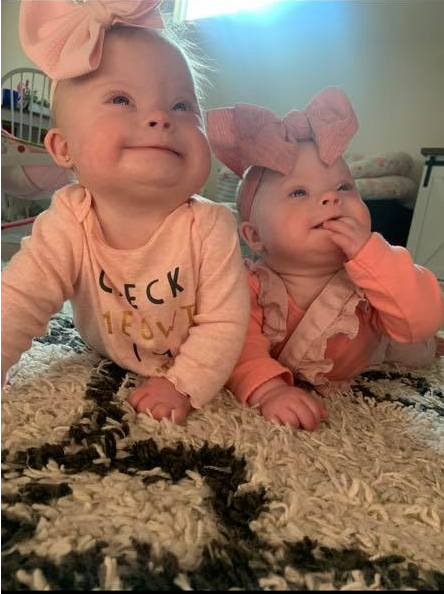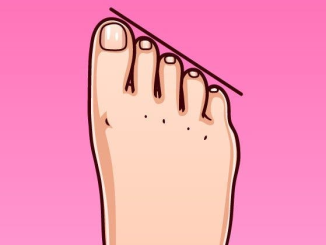
When Millie Smith and Lewis Cann found out they were expecting a baby, they were overjoyed. As there was a history of twins in Millie’s family, she had a strong feeling that she was going to give birth to two little ones, and her instincts were right. The ultrasound confirmed that she was indeed expecting twins, but the doctors told them that one of the babies had a very small chance of survival.
ragically, one of their daughters was born at 30 weeks with anencephaly, a serious condition that affects the development of the brain and spinal cord. They learned that their precious baby had only moments or hours to live.
Knowing this, Millie and Lewis wanted to give her a name before they said goodbye. They chose the name Skye. Millie explained: “We felt she needed a name before she arrived. Knowing she wouldn’t be with us for long, I wanted her to have a name in those fleeting moments”.
The name “Skye” symbolized a connection to a place they could always remember when they looked up to the sky. “We held Skye close as she died. It was the most heartbreaking moment of our lives, but I’m proud that she fought to spend that time with us.” Skye only lived for three hours, a brief time filled with love while her parents cherished her beauty and presence.

After her death, Millie and Lewis were supported by a “bereavement midwife” and given access to a “Daisy Room”, a special room where parents could spend time with their baby before and after death. However, after Skye was gone, her memory seemed to fade; no one spoke of her, leaving Millie feeling like her daughter had never existed, which made her angry.
“Most of the nurses knew what had happened, but as the weeks went by, people stopped mentioning Skye. Other families around me had no idea about our loss”, Millie recalls.

While her other daughter, Callie, was still in the NICU, another mother who knew nothing about Millie’s situation remarked how lucky she was not to have twins. “None of the other parents knew about Skye, and that innocent comment almost broke me. I left the room in tears but didn’t have the heart to explain”, Millie said. “A simple sticker could have prevented this.”
This experience inspired Millie to design a sticker for incubators to mark the loss of one or more babies in a multiple birth. She chose butterflies to symbolise the ‘flown away’ babies and used the colour purple, which is suitable for any gender.
From this idea grew the Skye High Foundation, which promotes the Purple Butterflies initiative and helps raise awareness in hospitals around the world. The foundation also offers a range of purple butterfly merchandise.
“Although I can’t prevent these situations from occurring, I believe the more support we can provide through initiatives like the stickers, the better it will be for others who suffer this loss. It’s an incredibly tough journey”, said Millie. Today, her surviving daughter Callie is seven years old.
Mom of rare twins with Down syndrome shuts down critics with photo showing how beautiful they are
Twin pregnancies are still quite uncommon, despite a 72% increase in likelihood between 1980 and 2018. Twins are born in about 33 of every 1,000 births.
What are the probabilities of having identical twins? Out of 1,000 births, three to four are identical twins on average. So once more, not very common.
Savannah Combs, age 23, was overjoyed to learn she was expecting twins. She then discovered that they both have Down syndrome, which is also unusual.

Of course, the information was upsetting. Savannah and her husband Justin Ackerman were aware that due of her illness and the state of her children, some people would judge them.
But Savannah finds that to be the same thing that makes them so beautiful.
“It’s very rare what they have, but they’ve been my little gems,” she mentioned.
Savannah, a Middleburg, Florida native, posted videos of her postpartum journey on TikTok with her kids Kennadi Rue and Mckenli Ackerman, and the videos immediately acquired popularity.
Savannah said in one of her videos that she was advised to abort her children because they wouldn’t survive.
She made the choice to keep them and give them a shot.

”Every [prenatal] appointment they were alive was a blessing to me,” Savannah explained.
Her spouse was gone at boot camp when she found out they both had Down syndrome.
When Savannah was admitted to the hospital, she was 29 weeks along with her pregnancy and gave birth to twin daughters. Kennadi Rue and Mckenli Ackerman, identical twin daughters, were born on May 12, 2021.
The twins had to spend a few weeks in the NICU before going home because they were born two months early.
“They’re called mono di twins, meaning that they had their own sacs, but they shared the same placenta, meaning that they were going to be identical,” she said.
“Mo di twins as it is, it’s like very rare. And then you throw Down syndrome on top of it, it’s like one in 2 million.”
They are just like any other youngster, according to Savannah, despite having an uncommon disease.
“They have feelings. They have a beating heart. They know how to talk. They know how to do things you do. They will get there,” she said.
“Like I said, it may be a step behind but they’re going to do it. I’ve learned these kids are feisty little things and happy little things.”Savannah posts wonderful updates on TikTok as each youngster continues to reach their milestones.
“I’m going to let them know that they’re just like us and they’re going to get there as long as they put their minds to it.”
Nevertheless, some people feel compelled to be critical of Savannah and her family. The young mother was forced to respond to some extremely cruel people on social media as a result.
”I wouldn’t want those babies; if mine came out like that, they would be straight up for adoption,” one person wrote to the mother.
Savannah, though, had the ideal response, which she posted on Facebook.
“I said, good thing they weren’t born to you and were born to me. God knew what he was doing by giving these babies to the right parents who would love them regardless.”



Leave a Reply